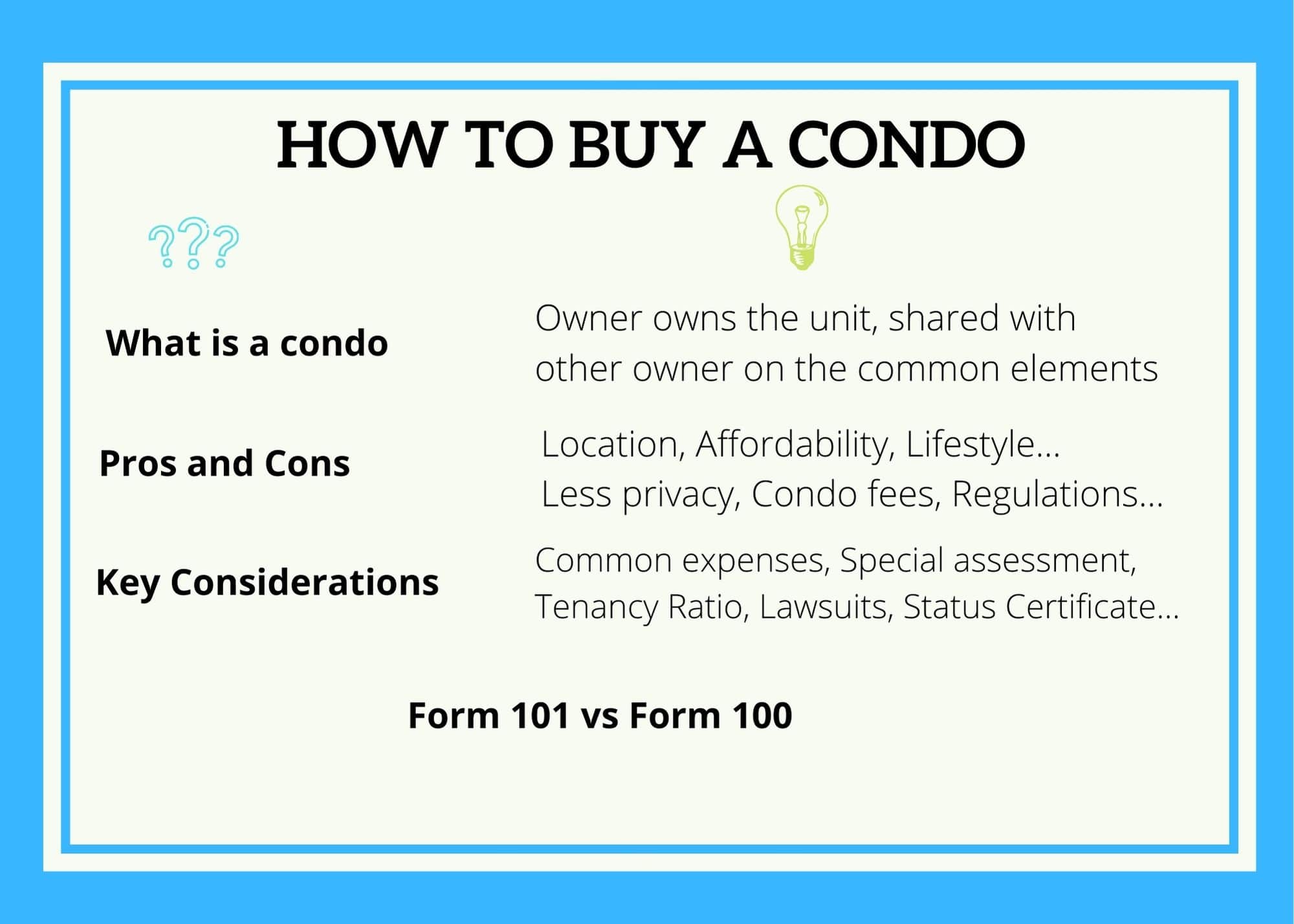- Is a commission rebate legal in Ontario? →
- How much will I actually save? →
- When do I receive my rebate? →

This guide outlines the distinctive features of condos, and special considerations when you buy a condo in Great Toronto Area (GTA), Ontario
For the condo buyer who doesn't have much knowledge in real estate transactions, please refer to the home buyer guide, which covers comprehensive information on mortgage calculation, pre-approval, how to identify the right property, the related laws and regulations, the whole process of home buying, closing cost, agreements, and some specific topics.
Pre construction condo buying and condo assignment are different in the process compared to the regular condo resale market, which is outlined respectively in the different pages.
Residential condominiums are divided into 2 parts: units and the common elements. A condo unit is a space that the owner holds sole ownership of. The common elements are jointly owned with other owners.
Condo townhouse appears like a townhouse but in essence, it is a condo by township since the condo townhouse buyer has the individual ownership of unit but shares the common areas with other owners
Those common areas include elevators, hallways, facilities, etc. The costs of maintenance and repairs of the common elements are shared among the owners.
In addition to the common elements shared by all owners, some of the common elements may be for exclusive use. For example, exclusive use of the balcony, parking, storage, and locker, etc.
Though the high-rise buildings are most popular, the condo actually covers a wide range of building types like apartment buildings, house condos, townhouse condos.
Therefore the determination of condominiums is more based on property ownership rather than the building types.
The obligation to pay the maintenance fee no matter if you use the amenities.
The requirement and approval of the condo corporation for any changes except minor interior decorations.
The sale of the unit may even need condo corporation's approval
Restriction on smoking, pet, parking, etc.
Different condos offer different services at different charges. Buyers can confirm this fee with the property management company and put a condition clause in the contract.
You could judge the performance of the condo property management by common elements conditions. It implicates the possibility of a need for the special fund.
If you invest in a condo or have the potential possibility of renting out, you would consider the ratio. If over 25% of the occupant are tenants, you may think twice since the condo value may be impacted
In addition to the monthly expense, the unit owners will be required to pay an additional monthly fee in case that the special fund reserve is not adequate.
It mainly happens in a mixed-use building of residential and commercial units. Some utilities and facilities are shared, the residential unit owners may pay a disproportionate share of expenses.
Any reserve fund inadequacy and Any special assessments may cause the lender’s concern.
Lenders assess the tenant-to-owner ratio and prefer the higher percentages of owner-occupied units.
Lenders use gross debt service (GDS) to calculate mortgages and include 50% of the monthly maintenance fee.
A condominium’s value can be influenced by its view. The view may be blocked by potential new development in the vicinity.
Form 101 requires a more detailed description of the property, such as type of unit, apartment, townhouse, suite or unit
The legal name of the condominium corporation
Parking and Locker
Common expenses
No special meeting warranties from sellers. This clause is to protect the buyer's interest from unexpected adversarial happenings.
Condo corporations could say no to the deal, though it does not often happen.